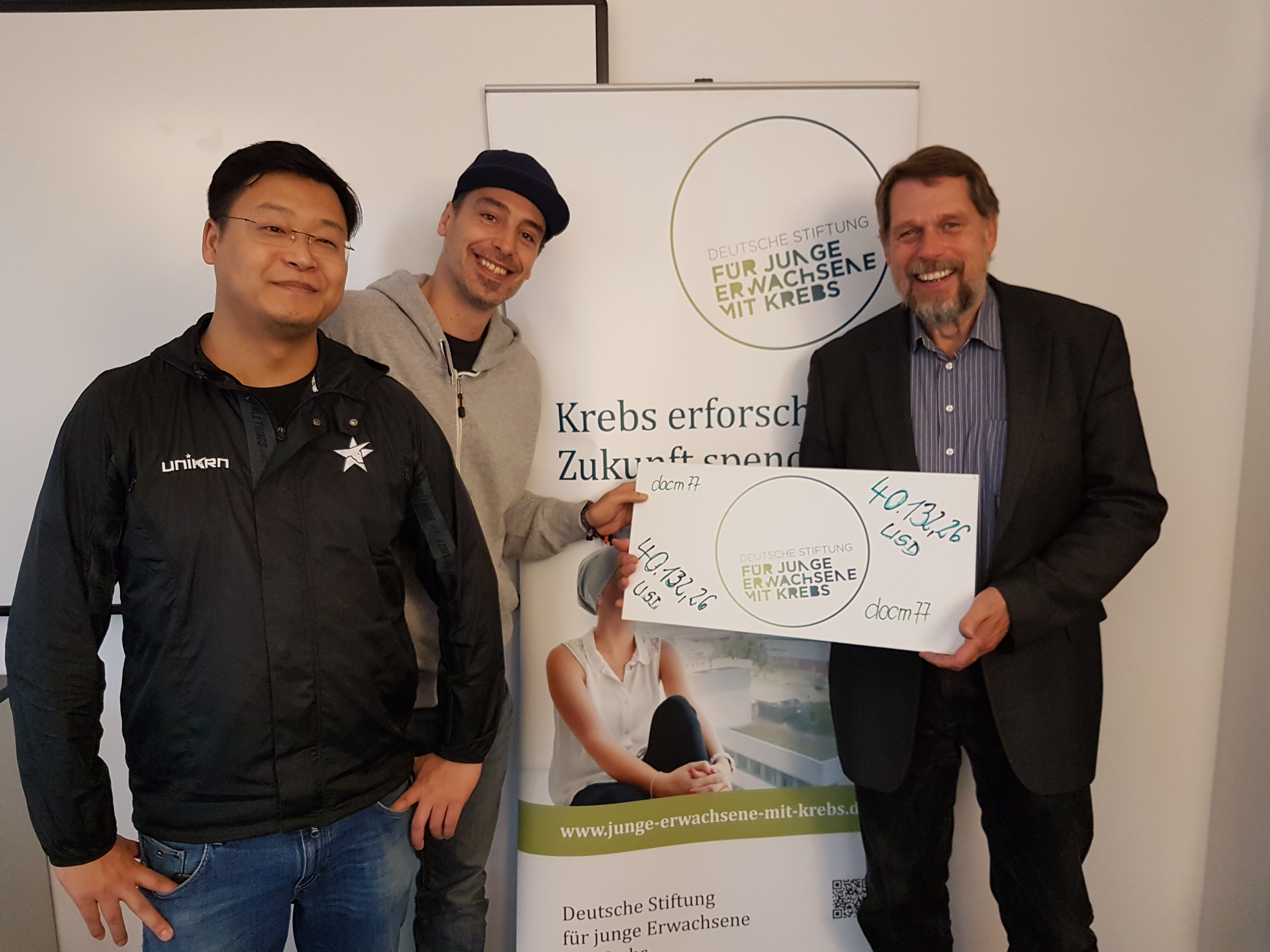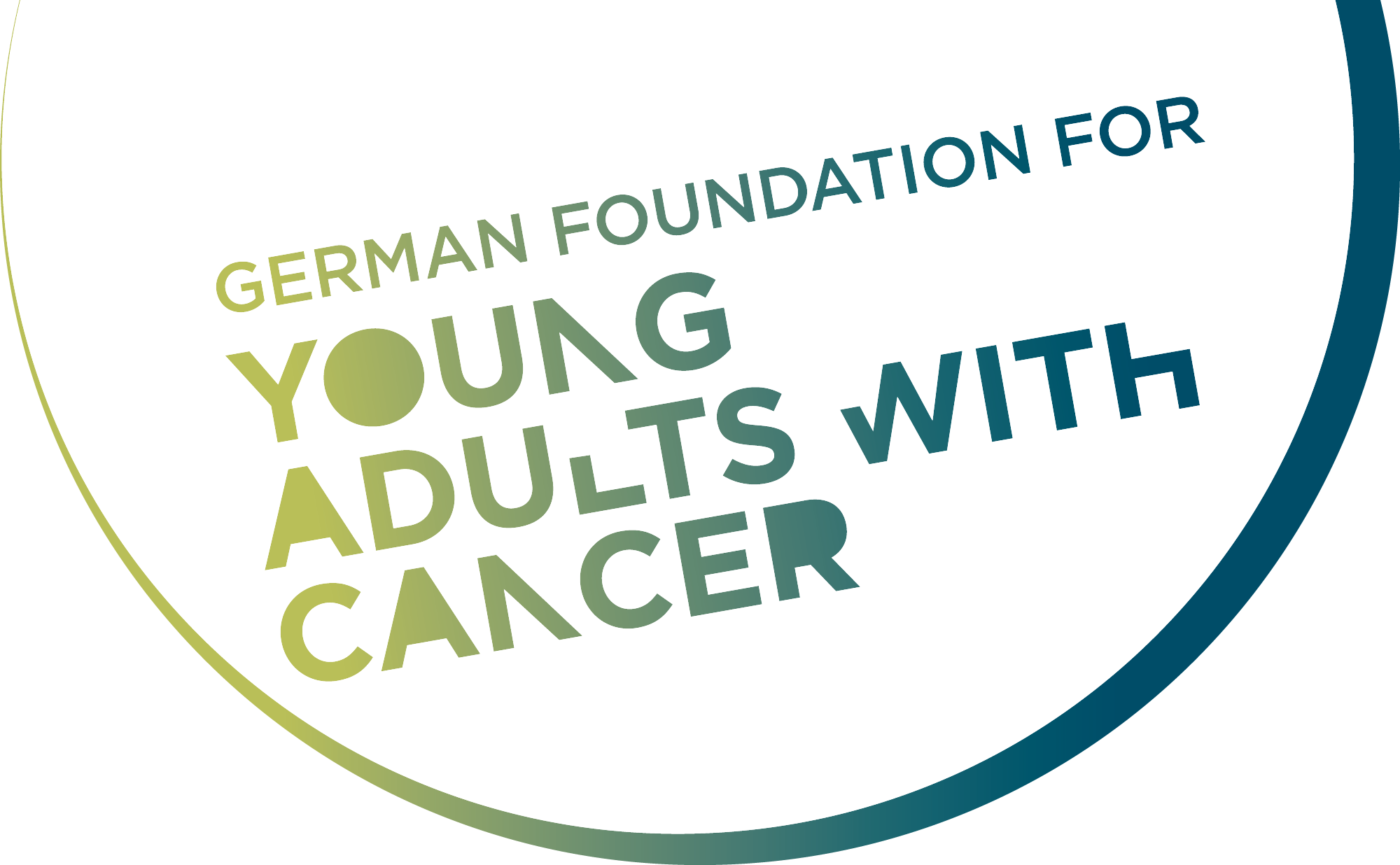In favor of the German foundation for Young Adults with Cancer, the influencer docm77 played Minecraft live on twitch.tv

Click here to rewatch the hole stream:
Part 1: https://www.twitch.tv/videos/364617023
Berlin, November 27th, 2018 – “Holy sh**! We collected $ 40,000! Forty thousand dollars in twelve hours for young adults with cancer! Is that supposed to be a joke? You guys are crazy! I love you so much!”, writes docm77, aka Steffen Mössner, an influencer and livestreamer with well over half a million Youtube subscribers, shortly after midnight on 18th of November 2018 with tears in his eyes. Mössner publicly played “Minecraft” together with other gamers belonging to the Minecaft group “Hermitcraft” the day before. His followers and viewers were able to follow the game and at the same time donate money for the work of the German Foundation for Young Adults with Cancer. A total of 32,000 viewers from the US, Germany, Australia, Denmark, Poland and other countries around the world joined during the stream.
One week after the charity event, Mössner presented an impressive donation check in the amount of $ 40,132.26 (after deducting the fees corresponds to the donation amount 32,996.80 euros). “We are very grateful for this great support to our work for young cancer patients and men aged 18 to 39 years. In addition, Steffen Mössner sensitized many thousands of people to the situation of young cancer patients”, explains Prof. Dr. med. med. Mathias Freund, chairman of the Board of trustees.
“We play Minecraft and other games – hundreds of thousands have fun to watch us,” describes the committed Mössner very shortened his job. “Cancer is still one of the most serious disease of our time. I am lucky to be in a position where I can reach a lot of younger people. I believe that every person who has this kind of reach should be using it from time to time to give back and help raise money for good causes. My community has been supporting me for various charity projects and this truly is the power of the gaming community: We all come together and bundle our strength to help the ones in need.”, he adds.
Mössner was supported by Tom Lemke, General Manager for Partnerships at the Berlin firm Challengeme. Lemke came to the Foundation and offered his special help: “We did not have to think twice to support this charity stream. Our users on the Challengeme.gg platform are in average between the ages of 18 to 29 years. A young foundation for young people suits us. We are at the same age and may have similar dreams and aspirations to the future as the young patients “. In addition, the General Manager would like to thank all companies who generously supported this special charity campaign with donations of more than € 5,000.
Patrick, an online marketing manager from Berlin and volunteer committed patient in the foundation also joined the stream and answered questions of the community in the Twitch Chat.
The Foundation’s work and offerings for young people who are or have had cancer at the age of 18 to 39 and are suffering from the consequences of the serious illness are only possible, because of donations. “That’s why we are very pleased about this creative action by the professional gamer, with whom we can reach and attract enormous numbers of people,” explains Foundation Board member Prof. Dr. med. med. Diana Lüftner.
Around 15,000 young adults between the ages of 18 and 39 in Germany are diagnosed with cancer each year. While about 80% of these young patients can be cured, they often suffer from long-term consequences such as cardiovascular and hormonal disorders, secondary malignancies, and tumor associated fatigue. Cancer strikes these young patients at a time when many want to start a family or first job, thus impacting the rest of their lives. The German Foundation for Young Adults with Cancer promotes scientific research and aims to improve care for this unique group of patients. Our focus is on increasing chances of recovery, quality of life, and future prospects of young adults with cancer. We assist, educate and support young patients, relatives, researchers, practitioners, and the public.
